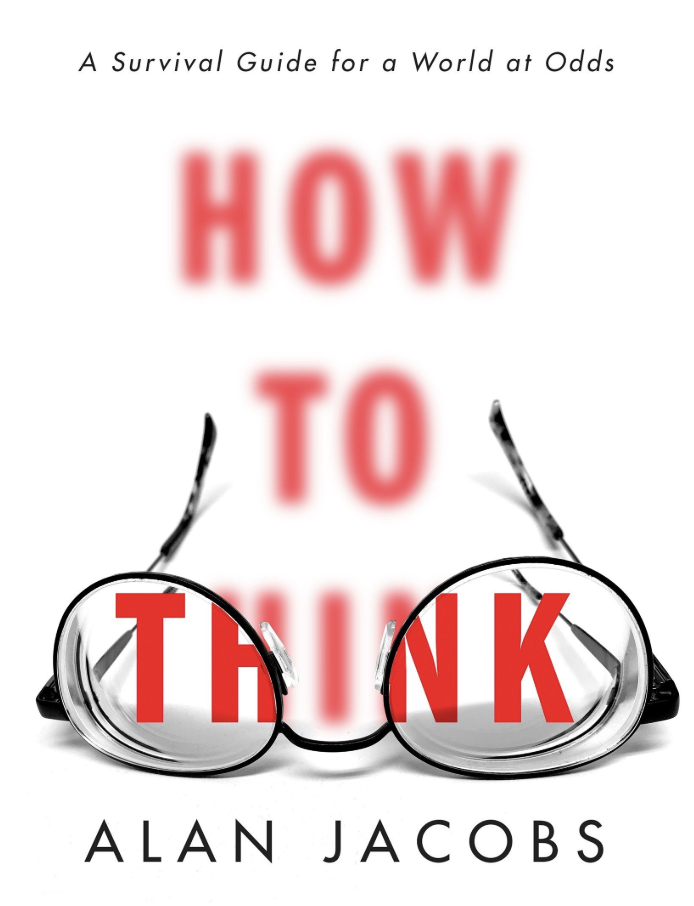In the first chapter of his book How to Think, Alan Jacobs makes two main points: 1) thinking alone is impossible and 2) true thinking requires a marriage of reason and emotion. Perhaps his most salient takeaway comes as a result of those two facts: it is possible to have engaged in genuine thought and come up with the wrong answer, and it is possible to come up with the right answer for bad reasons without thinking at all.

Jacobs focuses on the way that we tend to denigrate the thinking process of others. If those we love have changed their mind from our viewpoint to one we oppose, we tend to assume they’ve been ensnared instead of thinking for themselves. If those we love do something we can’t understand, we tend to dismiss them as irrational or crazy.
After the break, I’ll talk about some ways I will attempt to work through these dilemmas with my students..
Example 1: Sports Free-Agency
Note this paragraph from an NY Times blog on the nature of free-agency in a major sport like football or basketball.
The funny thing about free agency is that everyone acknowledges that it begins with a frenzy of overspending and wishful, if not outright irrational, decision-making. Yet, every year, free agency somehow manages to once again begin with a frenzy of overspending and wishful, if not outright irrational, decision-making. Mistakes of the past are repeated enough to make George Santayana roll over in his grave.
Andy Benoit
The question is this: what standard is being used to judge the spending as “wishful” and “irrational”? Generally, teams are judged by one standard alone: how does X player help Y team concretely perform better on the field, with the wish being that X player will make enough of a difference to help Team Y win a championship. Maybe a commentator will admit that winning a championship is only one concern among others and will discuss building fan interest and providing a fanbase with hope. Since only one team per season can be champion, any team that has championship aspirations must be wishful. In addition, fandom is a fickle thing indeed. Just as Wilt Chamberlain’s decision not to shoot his free-throws underhand was not necessarily irrational, so too is the judgment that free-agency spending is irrational missing something crucial about a business decision involving millions of dollars. The word “irrational is a substitute for the word “indefensible,” but it ends up obscuring the thinking process by implying that the people who made the decision did not follow a rational process.
This will lead, I hope, to a more general discussion of fandom and taste: the reasons we like the things we like. Fandom tends to tilt the scales toward emotion over reason and tends to be fostered in community rather than solitude. In Clemson Tiger country, this topic will be a fascinating one to discuss.
Example 2: Macbeth
If I had a quarter for every time I heard a student describe Macbeth as crazy, then I would be a rich man indeed. What they mean is that he’s not moral. He sees visions. He listens to witches. He commits murder. Yet, my students fail to see how in every single instance, Macbeth responds consistently. He entertains the thought of murder, and he feels his conscience pricked. He commits murder, and he feels badly about it. He fears losing his kingdom, so he consults the people who accurately predicted his winning the throne in the first place. To say that Macbeth acts immorally is a different thing than saying he acts irrationally. He doesn’t slaughter random people. He goes after his enemies. He doesn’t act erratically. He really does see Banquo’s ghosts and is justifiably frightened. Again, the question I will ask my students is this: what happens to Macbeth’s responsibility if we assert that he’s crazy?
Example 3: A rejoinder
When is it okay to make an argument that your opponent IS irrational even when they haven’t broken with reality? The argument offered by some Reformation apologists is that all non-Christian philosophies refute themselves: naturalism, atheism, and other kinds of -isms are “irrational” because they cannot hold together as coherent, rational world views. In short, The wise man of this world is proved foolish and the rational man is proved irrational.
This paradox–the groundlessness of reason–is a recurring theme in both postmodern thought and Christian apologetics.
The Christian believes that only the God declared in the Bible–the personal, transcendent triune God–can philosophically support everything from rationality, and empiricism to and emotional veracity and capital ‘T’ Truth. The sticky wicket is when we ask Christians to work through the requirements necessary to build this case: to answer the fool according to his folly (and expose the irrationality of his position) and refuse to answer the fool according to his folly (and thus present the Christian case as the only way of accounting for the truth of the world).
Figuring out when to start swimming into these theologically, philosophically, not to say rhetorically deep waters? That’s what takes tact and a healthy dose of the Spirit.
